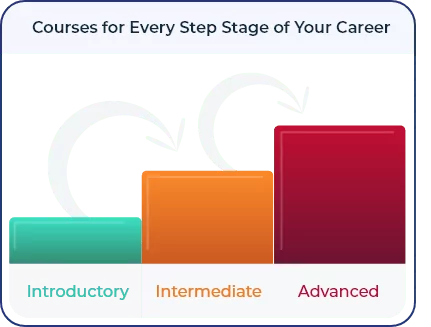CAUTION – This article was written in 2013 and amy no longer be accurate.
Being a full-time project manager can be a very demanding role. In principle, the bulk of the project manager’s work should be in the planning stages, but some projects demand significant fire-fighting during execution, maintaining the level of effort throughout the project. Many project managers have families to consider and find that free time is a very scarce resource.
So it is not really surprising to find that there are project managers who have taken Project Management Professional (PMP)® preparation courses, but who have never actually sat the PMP® exam. While their companies might have sponsored the courses, there just might not have been enough time to devote to study prior to sitting the exam. Given the nature of the exam, it is very easy to invent excuses to avoid doing it – I haven’t the time. I’ll wait until this project is finished. I’ll wait until the children are back in school. Whole years can go by using this sort of rationale.
Now anyone who has been avoiding the PMP® exam has the perfect excuse: The Project Management Institute has revised its Guide to the Project Management Body of Knowledge (PMBOK® Guide). Having studied the fourth edition, there’s no point now even thinking about doing the PMP® exam – it’s all different now.
Well actually it isn’t! The move to the fifth edition of the PMBOK® Guide is basically a housekeeping exercise. There has been a streamlining of naming conventions and the whole layout is a lot more logical. Granted, we now face one new knowledge area and the process count has risen from 42 to 47, but these are really just highlighting material that had been covered in the fourth edition. Essentially, if you understood all (or most) of the material covered in your fourth edition PMP® preparation class, you really will not encounter anything fundamentally new if you look at the fifth edition.
Do you remember the major topics you covered way back then? Do you remember the two things that constituted the Initiation process group – Identifying stakeholders and developing the project charter? Well they’re still there. Okay Identify Stakeholders is now in the Project Stakeholder Management knowledge area instead of being part of Communications, but stakeholders are still the same people and groups as they were when the fourth edition of the PMBoK® was in vogue.
How about scope? Remember how you collected requirements, created a scope statement and developed a Work Breakdown Structure? Remember how you had to control scope – avoiding scope creep and ensuring any change requests went through the Change Control Board? You also had to ensure that the stuff produced by the project team was accepted formally by the customer. Well all this is needed today. Okay, the fifth edition has added a Plan Scope Management process, but that had to be done in the fourth edition, except there it was disguised as part of Develop Project Management Plan. The other change is that they have changed Verify Scope to Validate Scope. This should be a welcome change as it corrects a mistake in the terminology – you verify that you’ve built the project right, but you validate that you’ve built the right product.
What was the principal thing you learned in Project Time Management? Yes, the Critical Path Method. Well that’s still there. Remember your early starts and finishes, your late starts and finishes? Remember the float calculations and finding the critical path? How about the tricks to compress the schedule – fast tracking, crashing? Not forgetting resource levelling and how that might lengthen your schedule.
Who could forget Earned Value Management, still the core of Project Cost Management? I bet you can still recall the various formulae – schedule variance (EV – PV), cost variance (EV – AC) and all those Budget at Completion options you needed for forecasting. Remember the different scenarios: the project will continue at the same burn rate; the initial overspend is atypical and the project will continue as planned and the initial overspend is typical and we need to plan for similar overspending for the rest of the project? All these are in the fifth edition of the PmBoK®, together with those old favourites: net present value, depreciation (straight-line and accelerated), internal rate of return, benefit-cost analysis and payback period.
Project Risk management is largely unchanged – you still identify risks, analyse them and decide on how to respond to them. You are still being urged to be on the lookout for risks all through the project. One nice change is that the Monitor and Control Risks process has been shrunk to Control Risks.
It is a similar story with Project Procurement Management. There are some detail changes: they call contracts “agreements” now and Administer Procurements has been changed to Control Procurements, but you still have to make the Build or Buy decision, still have to get potential suppliers to bid for the work, still have to select one from many competing bids and, of course, you have to manage the relationship through to completion. Even if it all goes pear-shaped, the same alternative dispute resolutions are still being invoked.
So, essentially, what you learned in the past has not been wasted. Far from it: the fundamentals of project management have not changed. If you have a good feel for what is needed to manage a project; if you are comfortable with what initiating, planning, executing, monitoring & controlling and closing is all about; if you understand the need to integrate scope, time, cost, quality, human resources, communications/stakeholders, risk and procurement, then you are still in a good position to get that PMP® accreditation!
All you need really is a quick PMP® refresher course. You have probably forgotten some of the details since you did your own PMP® preparation class, but this might actually be a good thing. Because the PMBOK® Guide 5th edition has revised the details, not the fundamentals, taking a 2-day PMP® exam refresher course could be just what you need to position yourself finally to get your PMP® accreditation.
We are going to revise the core PMP® exam materials, as we always do in these classes, but we will highlight the changes brought in by the PMBOK® Guide fifth edition. This will give you the confidence to bite the bullet and pick a PMP® exam date.
Velopi regularly runs such a PMP® Refresher training course whenever PMI® changes the PMP® exam content.

















